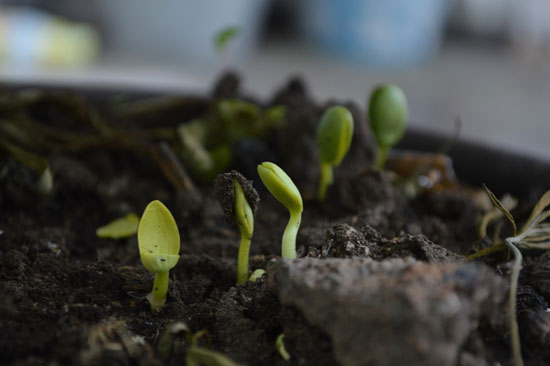
“While browns and greens are essential to composting, they only provide the venue and the buffet. A vast web of critters, creatures, and itty-bitty beings do all of the work of transforming browns and greens into black gold. Composters fondly refer to them as the F.B.I.: fungi, bacteria, and invertebrates. Check out their dossiers.
1. Fungi
Why did the mushroom get invited to the compost dance party? Because he’s a fungi (geddit, fun-guy?) . . . and he can sure break it down!
Fungi are microorganisms that include molds, mushrooms, and yeasts. Common in cooler temperatures, they do a great job of decomposing cellulose and lignin, the woodier components of plant matter that can be too dry, acidic, or low in nitrogen for bacteria to work on. Fungi perform this vital task by squirting enzymes into their food and noshing on the nutrients released in this process. This occurs predominantly in mesophilic temperatures, which range from 40 to 110 degrees Fahrenheit. Fungi are most commonly found in compost made from leafy, woody materials. If you’d like your compost to be more fungally dominated, make sure to work lots of landscaping waste into your pile.
2. Bacteria
Bacteria are single-celled microorganisms that exist virtually everywhere. In fact, they are inside your body right now, about a hundred trillion of them, or ten times the number of cells you have. (Are you freaking out? Don’t.)
In a compost pile, bacteria do most of the decomposition work. Mesophilic bacteria chow down on sugars and starches and are most productive in a temperature range of 70 to 90 degrees Fahrenheit. Most backyard compost piles are mesophilic, taking their temperature cues from the ambient air. As mesophilic bacteria eat, they produce heat, and the temperature of the compost system begins to rise. If they achieve temps of about 104 degrees, it gets a little too warm for them and their population dies off.”





















Compost with this microorganisms is helpful to make the garden more fertile.Your post has helped me to have knowledge about compost.